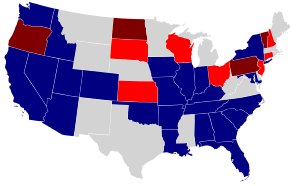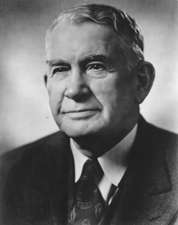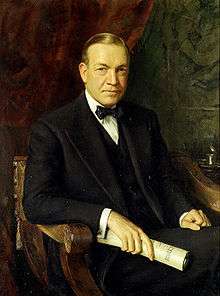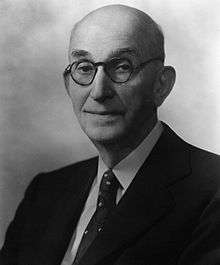United States Senate elections, 1938
|
| |||||||||||||||||||||||||||||||||||||||||||||||||||||||||||||||||||||||||||||||||
| |||||||||||||||||||||||||||||||||||||||||||||||||||||||||||||||||||||||||||||||||
32 of the 96 seats in the United States Senate 49 seats needed for a majority | |||||||||||||||||||||||||||||||||||||||||||||||||||||||||||||||||||||||||||||||||
|---|---|---|---|---|---|---|---|---|---|---|---|---|---|---|---|---|---|---|---|---|---|---|---|---|---|---|---|---|---|---|---|---|---|---|---|---|---|---|---|---|---|---|---|---|---|---|---|---|---|---|---|---|---|---|---|---|---|---|---|---|---|---|---|---|---|---|---|---|---|---|---|---|---|---|---|---|---|---|---|---|---|
| |||||||||||||||||||||||||||||||||||||||||||||||||||||||||||||||||||||||||||||||||
 Results including special elections Democratic gain Democratic hold Republican gain Republican hold | |||||||||||||||||||||||||||||||||||||||||||||||||||||||||||||||||||||||||||||||||
| |||||||||||||||||||||||||||||||||||||||||||||||||||||||||||||||||||||||||||||||||
The United States Senate elections of 1938 occurred in the middle of Franklin D. Roosevelt's second term. This occurred six years after the Democratic landslide in the 1932 election, and so the opposition Republicans gained seven seats from the Democrats. However, the Democrats retained a commanding lead over the Republicans with more than two-thirds of the chamber.
Background
A contemporary account [1] cited a number of reasons for the losses suffered by the Democrats. The first was the Recession of 1937, which had continued into the first half of 1938, and which had arguably weakened public confidence in the administration's New Deal economic policies. Controversy over the Judicial Procedures Reform Bill of 1937 (Roosevelt's "court-packing" plan) was also a major factor. There were, in addition, strains between the more liberal New Deal supporters and the conservative wing of the Democratic party centered in the Southern states. These strains were exacerbated by an effort led by President Roosevelt to target certain conservative senators for defeat in Democratic primaries, including Walter George of Georgia, Millard Tydings of Maryland and Ellison Smith of South Carolina, along with the chairman of the House Rules Committee, John J. O'Connor of New York. While a number of New Deal supporters won primary elections, such as Sen. Alben Barkley in Kentucky, who defeated future baseball commissioner Happy Chandler, Sen. James P. Pope of Idaho, a prominent New Deal supporter, lost his bid for re-nomination, as did California senator William McAdoo, though McAdoo's Democratic opponent Sheridan Downey had campaigned as a liberal New Dealer who would also do more to improve pension plans.[2]
Given the high levels of Democratic success in the 1930, 1932, 1934 and 1936 elections, the Democrats were in a difficult position in defending a large number of seats, even without these pressures. This was the first of five consecutive elections where the GOP made gains in the Senate.
Gains and losses
Overall, the Democrats lost 7 seats to Republicans
- Augustine Lonergan (D-CT)
- George McGill (D-KS), the last Democrat ever elected to the Senate from Kansas
- Fred H. Brown (D-NH)
- John Gerald Milton (D-NJ) had been appointed to replace A. Harry Moore (D), who resigned. Milton did not run in the special election to finish the current term (ending in 1941).
- Robert J. Bulkley (D-OH)
- Herbert Hitchcock (D-SD) had been appointed to replace Peter Norbeck (R), who died. Hitchock lost the Democratic primary both to finish the current term (ending in 1939) and for the new term (ending in 1945).
- F. Ryan Duffy (D-WI)
Change in Senate composition
Before the general elections
After the February 1, 1938 appointment in Oregon.
| D1 | D2 | D3 | D4 | D5 | D6 | D7 | D8 | ||
| D18 | D17 | D16 | D15 | D14 | D13 | D12 | D11 | D10 | D9 |
| D19 | D20 | D21 | D22 | D23 | D24 | D25 | D26 | D27 | D28 |
| D38 | D37 | D36 | D35 | D34 | D33 | D32 | D31 | D30 | D29 |
| D39 | D40 | D41 | D42 | D43 | D44 | D45 | D46 | D47 | D48 |
| Majority → | D49 Ran | ||||||||
| D58 Ran |
D57 Ran |
D56 Ran |
D55 Ran |
D54 Ran |
D53 Ran |
D52 Ran |
D51 Retired |
D50 Retired | |
| D59 Ran |
D60 Ran |
D61 Ran |
D62 Ran |
D63 Ran |
D64 Ran |
D65 Ran |
D66 Ran |
D67 Ran |
D68 Ran |
| I1 | D77 Ran |
D76 Ran |
D75 Ran |
D74 Ran |
D73 Ran |
D72 Ran |
D71 Ran |
D70 Ran |
D69 Ran |
| P1 | FL2 | FL1 | R15 Ran |
R14 Ran |
R13 Ran |
R12 | R11 | R10 | R9 |
| R1 | R2 | R3 | R4 | R5 | R6 | R7 | R8 | ||
General election results
| D1 | D2 | D3 | D4 | D5 | D6 | D7 | D8 | ||
| D18 | D17 | D16 | D15 | D14 | D13 | D12 | D11 | D10 | D9 |
| D19 | D20 | D21 | D22 | D23 | D24 | D25 | D26 | D27 | D28 |
| D38 | D37 | D36 | D35 | D34 | D33 | D32 | D31 | D30 | D29 |
| D39 | D40 | D41 | D42 | D43 | D44 | D45 | D46 | D47 | D48 |
| Majority → | D49 Re-elected | ||||||||
| D58 Re-elected |
D57 Hold |
D56 Re-elected |
D55 Re-elected |
D54 Re-elected |
D53 Re-elected |
D52 Hold |
D51 Re-elected |
D50 Re-elected | |
| D59 Re-elected |
D60 Re-elected |
D61 Re-elected |
D62 Re-elected |
D63 Re-elected |
D64 Re-elected |
D65 Re-elected |
D66 Re-elected |
D67 Re-elected |
D68 Hold |
| R19 Gain |
R20 Gain |
R21 Gain |
R22 Gain |
P1 | FL1 | FL2 | I1 | D70 Re-elected |
D69 Re-elected |
| R18 Gain |
R17 Gain |
R16 Gain |
R15 Re-elected |
R14 Re-elected |
R13 Re-elected |
R12 | R11 | R10 | R9 |
| R1 | R2 | R3 | R4 | R5 | R6 | R7 | R8 | ||
Special election results
| D1 | D2 | D3 | D4 | D5 | D6 | D7 | D8 | ||
| D18 | D17 | D16 | D15 | D14 | D13 | D12 | D11 | D10 | D9 |
| D19 | D20 | D21 | D22 | D23 | D24 | D25 | D26 | D27 | D28 |
| D38 | D37 | D36 | D35 | D34 | D33 | D32 | D31 | D30 | D29 |
| D39 | D40 | D41 | D42 | D43 | D44 | D45 | D49 | D46 Hold |
D47 Hold |
| Majority → | D45 Appointee elected | ||||||||
| D58 | D57 | D56 | D55 | D54 | D53 | D52 | D51 | D50 | |
| D59 | D60 | D61 | D62 | D63 | D64 | D65 | D66 | D67 | D68 |
| R19 | R20 | R21 Gain |
R22 Gain |
R23 Gain |
P1 | FL1 | FL2 | I1 | D69 |
| R18 | R17 | R16 | R15 | R14 | R13 | R12 | R11 | R10 | R9 |
| R1 | R2 | R3 | R4 | R5 | R6 | R7 | R8 | ||
| Key: |
|
Race summaries
Special elections during the 75th Congress
In these special elections, the winner was seated during 1938 or before January 3, 1939; ordered by election date.
| State | Incumbent | Results | Candidates | ||
|---|---|---|---|---|---|
| Senator | Party | Electoral history | |||
| Alabama (Class 2) |
J. Lister Hill | Democratic | 1938 (Appointed) | Interim appointee elected April 26, 1938. | √ J. Lister Hill (Democratic) [Data unknown/missing.] |
| New Jersey (Class 1) |
John G. Milton | Democratic | 1938 (Appointed) | Interim appointee retired. Winner elected November 8, 1938. Republican gain. |
√ W. Warren Barbour (Republican) 53.0% William H. J. Ely (Democratic) 45.7% |
| New York (Class 1) |
Royal S. Copeland | Democratic | 1922 1928 1934 |
Incumbent died June 17, 1938. Winner elected November 8, 1938. Democratic hold. |
√ James M. Mead (Democratic) 53.6% Edward F. Corsi (Republican) 45.8% |
| Oregon (Class 3) |
Alfred E. Reames | Democratic | 1938 (Appointed) | Interim appointee retired. Winner elected November 8, 1938. Republican gain. Winner also elected to next term, see below. |
√ Alexander G. Barry (Republican) [Data unknown/missing.] |
| South Dakota (Class 3) |
Herbert E. Hitchcock | Democratic | 1936 (Appointed) | Interim appointee lost nomination to finish the term. Winner elected November 8, 1938. Republican gain. Winner did not run for the next term, however, see below. |
√ Gladys Pyle (Republican) 58.1% John T. McCullen (Democratic) 41.9% |
| Tennessee (Class 1) |
George L. Berry | Democratic | 1937 (Appointed) | Interim appointee lost nomination to finish the term. Winner elected November 8, 1938. Democratic hold. |
√ Tom Stewart (Democratic)[3] 70.5% Harley G. Fowler (Republican) 26.2% |
Races leading to the 76th Congress
In these general elections, the winners were elected for the term beginning January 3, 1939; ordered by state.
All of the elections involved the Class 3 seats.
| State | Incumbent | Results | Candidates | ||
|---|---|---|---|---|---|
| Senator | Party | Electoral history | |||
| Alabama | J. Lister Hill | Democratic | 1938 (Appointed) 1938 (Special) |
Incumbent re-elected. | √ J. Lister Hill (Democratic) 86.4% J. M. Pennington (Republican) 13.6% |
| Arizona | Carl Hayden | Democratic | 1926 1932 |
Incumbent re-elected. | √ Carl Hayden (Democratic) 76.5% B. H. Clingan (Republican) 23.5% |
| Arkansas | Hattie W. Caraway | Democratic | 1931 (Appointed) 1932 (Special) |
Incumbent re-elected. | √ Hattie W. Caraway (Democratic) 89.6% C. D. Atkinson (Republican) 10.4% |
| California | William G. McAdoo | Democratic | 1932 | Incumbent lost renomination. New senator elected. Democratic hold. Incumbent then resigned and Thomas M. Storke (D) was appointed to finish the term. |
√ Sheridan Downey (Democratic) 54.4% Philip Bancroft (Republican) 44.7% Lillain Symes Clements (Socialist) 0.9% |
| Colorado | Alva B. Adams | Democratic | 1923 (Appointed) 1924 (Retired) 1932 |
Incumbent re-elected. | √ Alva B. Adams (Democratic) 58.2% Archibald A. Lee (Republican) 40.2% |
| Connecticut | Augustine Lonergan | Democratic | 1932 | Incumbent lost re-election. New senator elected. Republican gain. |
√ John A. Danaher (Republican) 42.9% Augustine Lonergan (Democratic) 40.0% Bellani Trombley (Socialist) 15.8% |
| Florida | Claude Pepper | Democratic | 1936 (Special) | Incumbent re-elected. | √ Claude Pepper (Democratic) 82.5% Thomas E. Swanson (Republican) 17.6% |
| Georgia | Walter F. George | Democratic | 1922 (Special) 1926 1932 |
Incumbent re-elected. | √ Walter F. George (Democratic) Unopposed |
| Idaho | James P. Pope | Democratic | 1932 | Incumbent lost renomination. New senator elected. Democratic hold. |
√ D. Worth Clark (Democratic) 54.7% Donald A. Callahan (Republican) 44.9% |
| Illinois | William H. Dieterich | Democratic | 1932 | Incumbent retired. New senator elected. Democratic hold. |
√ Scott W. Lucas (Democratic) 51.3% Richard J. Lyons (Republican) 48.3% |
| Indiana | Frederick Van Nuys | Democratic | 1932 | Incumbent re-elected. | √ Frederick Van Nuys (Democratic) 49.8% Raymond E. Willis (Republican) 49.5% Herman L. Seeger (Prohibition) 0.4% Louis E. Roebuck (Socialist) 0.1% Miles Blansett (Communist) 0.1% |
| Iowa | Guy M. Gillette | Democratic | 1936 (Special) | Incumbent re-elected. | √ Guy M. Gillette (Democratic) 49.7% Lester J. Dickinson (Republican) 49.4% |
| Kansas | George McGill | Democratic | 1930 (Special) 1932 |
Incumbent lost re-election. New senator elected. Republican gain. |
√ Clyde M. Reed (Republican) 56.2% George McGill (Democratic) 43.8% |
| Kentucky | Alben W. Barkley | Democratic | 1926 1932 |
Incumbent re-elected. | √ Alben W. Barkley (Democratic) 62.0% John P. Haswell (Republican) 38.0% |
| Louisiana | John H. Overton | Democratic | 1932 | Incumbent re-elected. | √ John H. Overton (Democratic) Unopposed. |
| Maryland | Millard E. Tydings | Democratic | 1926 1932 |
Incumbent re-elected. | √ Millard E. Tydings (Democratic) 68.3% Oscar Lesser (Republican) 29.3% |
| Missouri | Bennett Champ Clark | Democratic | 1932 1933 (Appointed) |
Incumbent re-elected. | √ Bennett Champ Clark (Democratic) 60.7% Harry S. Caulfield (Republican) 39.2% |
| Nevada | Patrick A. McCarran | Democratic | 1932 | Incumbent re-elected. | √ Patrick A. McCarran (Democratic) 59.0% Tasker L. Oddie (Republican) 41.0% |
| New Hampshire | Fred H. Brown | Democratic | 1932 | Incumbent lost re-election. New senator elected. Republican gain. |
√ Charles W. Tobey (Republican) 54.2% Fred H. Brown (Democratic) 45.8% |
| New York | Robert F. Wagner | Democratic | 1926 1932 |
Incumbent re-elected. | √ Robert F. Wagner (Democratic) 54.5% John Lord O'Brian (Republican) 45.0% |
| North Carolina | Robert R. Reynolds | Democratic | 1932 (Special) 1932 |
Incumbent re-elected. | √ Robert R. Reynolds (Democratic) 63.8% Charles A. Jonas (Republican) 36.2% |
| North Dakota | Gerald P. Nye | Republican | 1925 (Appointed) 1926 (Special) 1932 |
Incumbent re-elected. | √ Gerald P. Nye (Republican) 50.1% William Langer (Independent) 42.6% J. J. Nygard (Democratic) 7.3% |
| Ohio | Robert J. Bulkley | Democratic | 1930 (Special) 1932 |
Incumbent lost re-election. New senator elected. Republican gain. |
√ Robert A. Taft (Republican) 53.6% Robert J. Bulkley (Democratic) 46.4% |
| Oklahoma | Elmer Thomas | Democratic | 1926 1932 |
Incumbent re-elected. | √ Elmer Thomas (Democratic) 65.4% Harry G. Glasser (Republican) 33.9% |
| Oregon | Alfred E. Reames | Democratic | 1938 (Appointed) | Interim appointee retired. New senator elected. Republican gain. Winner also elected to finish term, see above. |
√ Rufus C. Holman (Republican) 54.9% Willis Mahoney (Democratic) 45.1% |
| Pennsylvania | James J. Davis | Republican | 1930 (Special) 1932 |
Incumbent re-elected. | √ James J. Davis (Republican) 54.7% George H. Earle (Democratic) 44.4% |
| South Carolina | Ellison D. Smith | Democratic | 1909 1914 1920 1926 1932 |
Incumbent re-elected. | √ Ellison D. Smith (Democratic) Unopposed |
| South Dakota | Herbert E. Hitchcock | Democratic | 1936 (Appointed) | Interim appointee lost nomination to next term. New senator elected. Republican gain. |
√ Chandler Gurney (Republican) 52.5% Tom Berry (Democratic) 47.5% |
| Utah | Elbert D. Thomas | Democratic | 1932 | Incumbent re-elected. | √ Elbert D. Thomas (Democratic) 55.8% Franklin S. Harris (Republican) 44.2% |
| Vermont | Ernest W. Gibson | Republican | 1933 (Appointed) 1934 (Special) |
Incumbent re-elected. | √ Ernest W. Gibson (Republican) 65.7% John McGrath (Democratic) 34.3% |
| Washington | Homer T. Bone | Democratic | 1932 | Incumbent re-elected. | √ Homer T. Bone (Democratic) 62.6% Ewing D. Colvin (Republican) 37.1% Eugene Solie (Socialist Labor) 0.3% |
| Wisconsin | F. Ryan Duffy | Democratic | 1932 | Incumbent lost re-election. New senator elected. Republican gain. |
√ Alexander Wiley (Republican) 47.7% Herman L. Ekern (Progressive) 26.6% F. Ryan Duffy (Democratic) 24.7% |
Elections during the 76th Congress
There were no elections in 1939.
Arizona
|
| |||||||||||||||||
| |||||||||||||||||
| |||||||||||||||||
| |||||||||||||||||
Incumbent Democrat Carl Hayden ran for re-election to a third term, defeating Republican nominee Burt H. Clingan, chairman of the Arizona Industrial Commission, in the general election.
In contrast to previous elections, Hayden was easily reelected, receiving only token opposition from a relatively unknown Republican challenger.
| Party | Candidate | Votes | % | |
|---|---|---|---|---|
| Democratic | Carl T. Hayden | 68,328 | 65.48% | |
| Democratic | Robert E. Miller | 22,154 | 21.23% | |
| Democratic | Whit I. Hughes | 13,867 | 13.29% | |
| Total votes | 104,349 | 100.00 | ||
| Party | Candidate | Votes | % | ± | |
|---|---|---|---|---|---|
| Democratic | Carl T. Hayden | 82,714 | 76.52% | ||
| Republican | Burt H. Clingan | 25,378 | 23.48% | ||
| Majority | 57,336 | 53.04% | |||
| Turnout | 108,092 | ||||
| Democratic gain from Republican | Swing | ||||
New York
New York Republicans nominated John Lord O'Brian for the U.S. Senate.[6] Democrats re-nominated the incumbent Wagner for the short Senate term.[7] The American Labor party endorsed Wagner.[8]
| Office | Democratic ticket | Republican ticket | American Labor ticket | Socialist ticket | Independent Progressive ticket | Industrial Government ticket | ||||||
|---|---|---|---|---|---|---|---|---|---|---|---|---|
| U.S. Senator, full term | Robert F. Wagner | 2,497,029 | John Lord O'Brian | 2,058,615 | Robert F. Wagner | Herman J. Hahn[9] | 23,553 | John Lord O'Brian | O. Martin Olson[10] | 3,851 | ||
New York (Special)
New York Republicans nominated Edward Corsi for the short Senate term.[6] Democrats nominated James M. Mead.[7] The American Labor party endorsed Mead.[8]
| Office | Democratic ticket | Republican ticket | American Labor ticket | Socialist ticket | Independent Progressive ticket | |||||
|---|---|---|---|---|---|---|---|---|---|---|
| U.S. Senator, short term[11] | James M. Mead | 2,438,904 | Edward F. Corsi | 2,083,666 | James M. Mead | Harry W. Laidler | 27,161 | Edward F. Corsi | ||
Pennsylvania
South Carolina
Vermont
Further reading
- Dunn, Susan. Roosevelt's Purge: How FDR Fought to Change the Democratic Party (2010) excerpt and text search
- Hixson, Walter L. "The 1938 Kentucky Senate Election: Alben W. Barkley, "Happy" Chandler, and The New Deal." Register of the Kentucky Historical Society (1982): 309-329. in JSTOR
- Plesur, Milton. "The Republican Congressional Comeback of 1938", Review of Politics Vol. 24, No. 4 (October 1962), pp. 525–562 in JSTOR
- Official New York result: LEHMAN PLURALITY OFFICIALLY 64,394; State Board Puts His Vote Finally at 2,391,286, With 2,326,892 for Dewey LABOR'S POLL AT 419,979 Blank, Void and Scattered Ballots Totaled 75,047; Poletti Won by 229,361 in NYT on December 8, 1938 (subscription required)
See also
References
- ↑ 1939 Britannica Book of the Year, "Democratic Party", pages 205-6
- ↑ LIFE. Time Inc. p. 13. ISSN 0024-3019. Retrieved October 5, 2014.
- ↑ Won special election in November 1938, but remained district attorney general until January 16, 1939, after the next Congress began.
- ↑ http://www.ourcampaigns.com/RaceDetail.html?RaceID=268957
- ↑ http://www.ourcampaigns.com/RaceDetail.html?RaceID=3300
- 1 2 DEWEY NOMINATED BY REPUBLICANS in NYT on September 30, 1938 (subscription required)
- 1 2 LEHMAN IS DRAFTED FOR FOURTH TERM in NYT on October 1, 1938 (subscription required)
- 1 2 LABORITES NAME LEHMAN WAGNER in NYT on October 4, 1938 (subscription required)
- ↑ Rev. Herman J. Hahn, of Buffalo, ran also for Lieutenant Governor in 1928 and 1936
- ↑ O. Martin Olson, of Jamestown, ran also for Comptroller in 1934
- ↑ to fill the vacancy caused by the death of Royal S. Copeland



